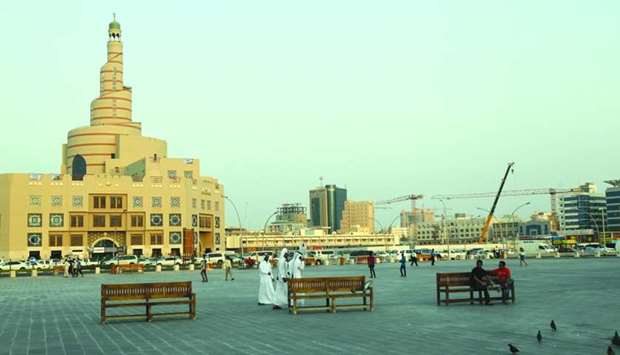Qatar’s economy may gain traction this year on the back of stronger fixed investment—aided by ongoing preparations for the 2022 World Cup—and healthy global growth, FocusEconomics has said in a recent report.
In its ‘Qatar Economic Outlook’, FocusEconomics panellists forecast growth of 2.9% in 2018, unchanged from last month’s projection, and 2.7% in 2019.
The economy is showing resilience this year despite the blockade, it said. Non-residential central bank deposits were fairly stable in January after rising in December for the first time since last April, while recent bond and loan placements by QNB demonstrated foreign investors’ appetite for Qatari assets, FocusEconomics said.
Exports surged in January thanks to the hydrocarbon sector, with the trade surplus up over 50% year-on-year, while industrial production improved in December after two consecutive monthly contractions.
In addition, following sharp price falls from June–November, the housing market appeared to stabilise in December. This comes after the third quarter (Q3) growth was boosted by a dynamic construction sector.
Nevertheless, FocusEconomics said the blockade "will weigh on the outlook" until a diplomatic solution is reached.
Hydrocarbons form the bedrock of Qatar’s economy, the reported noted.
Over the next two years, growth should be lifted by moderately higher oil and gas prices, while the new Barzan gas project will boost gas production by 1.4bn cubic feet a day.
Despite the government’s concerted diversification efforts, oil and gas revenues still account for around half of GDP, some 90% of fiscal receipts and the bulk of exports, making the country “highly vulnerable” to global price swings.
After oil and gas prices tanked a few years ago, the Qatari economy followed suit, with growth dropping from 4.4% in 2013 to an estimated 2.6% last year.
Over the same period, the large, sustained fiscal surpluses enjoyed in the decade up to 2015 were wiped out, with FocusEconomics saying the country may have registered a "budget deficit" last year for the first time in 15 years.
According to FocusEconomics, 2016 saw elevated public capital expenditure linked to preparations for the 2022 World Cup. This comes at a time when other governments across the region were tightening their belts.
However, Qatar has had a “softer economic landing” than most other oil-exporting nations. Prudent spending in the years leading up to 2015 means the country’s breakeven oil price is substantially lower than the GCC average; as a result, the country’s fiscal deficit is projected to have been the second-lowest among Gulf Cooperation Council (GCC) members, and far below the yawning deficit observed in neighbouring Saudi Arabia.




